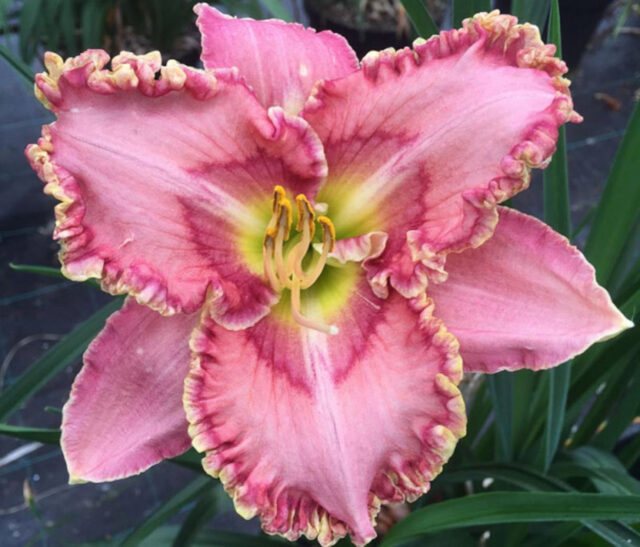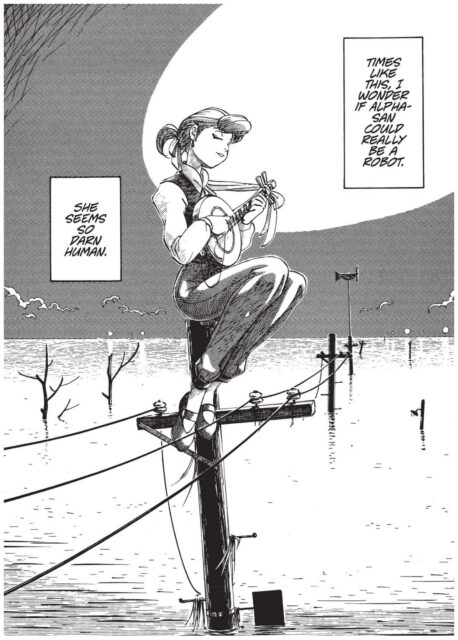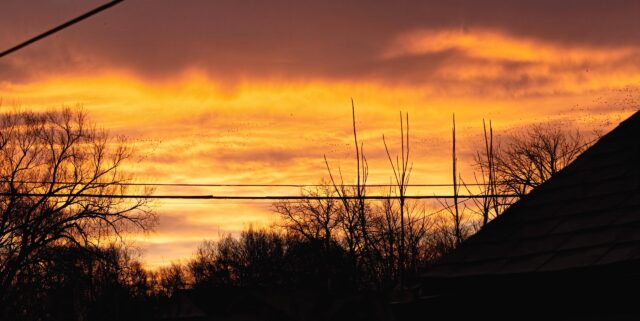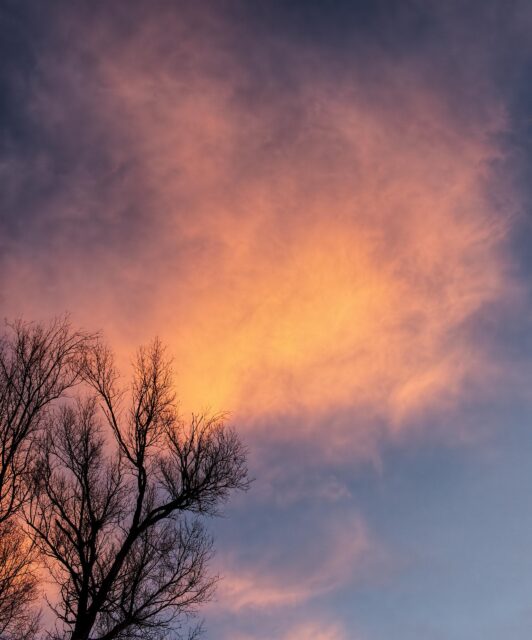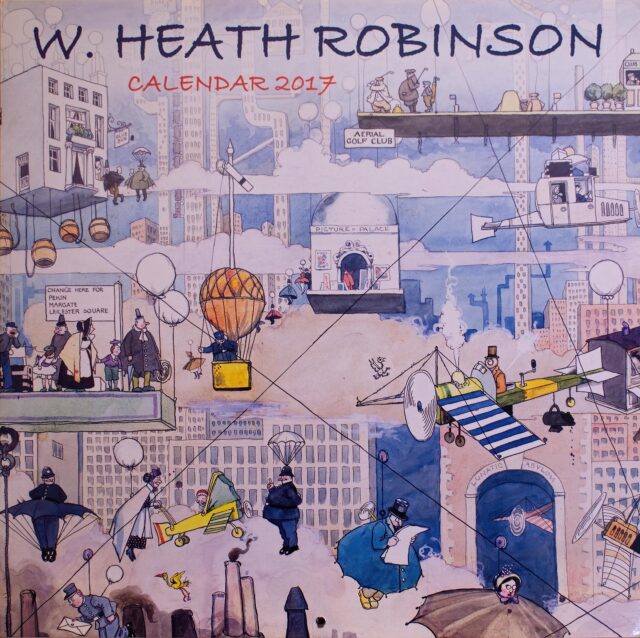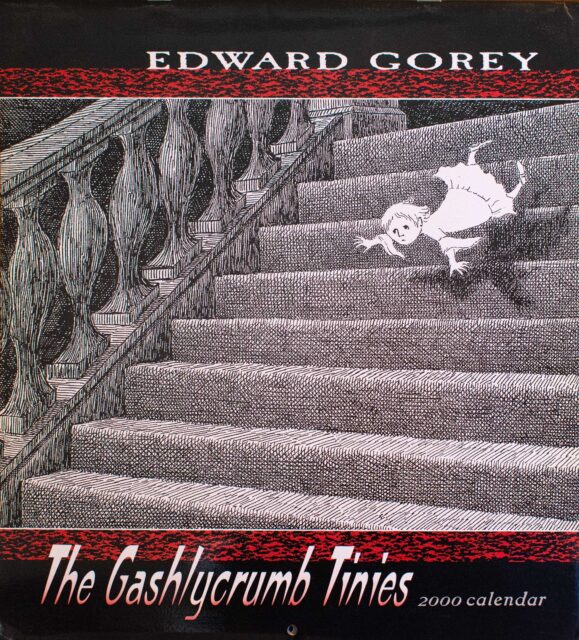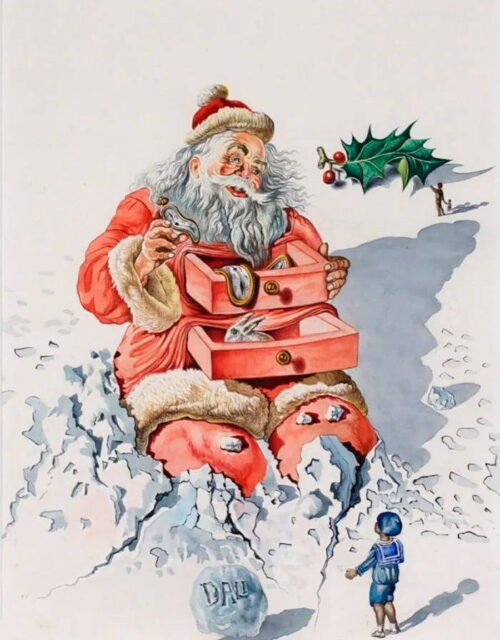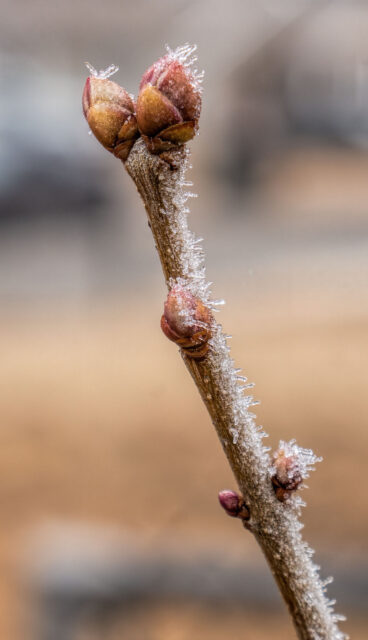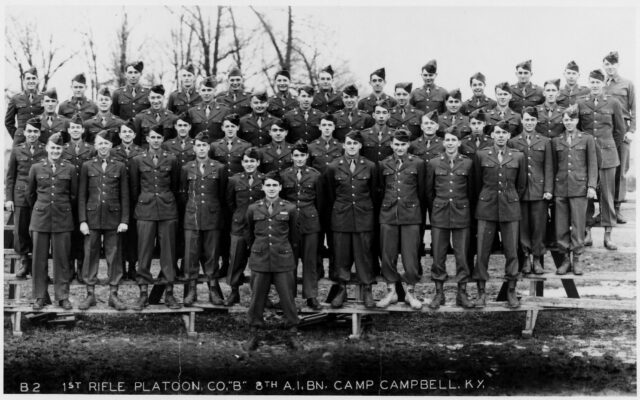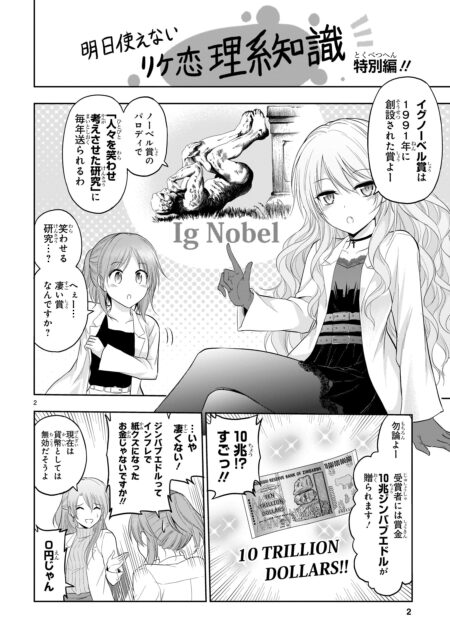Possibly of interest to gardeners with an interest in metafictional anime: There exists a “Princess Tutu” daylily.
Author: Don
2022: Light Entertainment
And now for last year’s wastes of time.
Japanese animation
Mostly I watched old favorites such as Shingu and Galaxy Angel. There were a few noteworthy recent shows I watched all the way through, but only a few. I’ve mentioned Miss Kuroitsu from the Monster Development Department and Super Cub before. There was also Keep Your Hands Off Eizouken! Ordinarily I have no interest in anime about making anime, particularly if it involves high school girls, but this one was by Masaaki Yuasa, who makes anime unlike other anime. So I gave it a try.
Midori Asakusa watched Miyazaki’s Future Boy Conan at an early age and has wanted to make anime ever since. She fills sketchbooks with concept art for the shows she wants to make. She’s short, shy and awkward. Tsubame Mizusaki is fascinated by movement and fills her sketchbooks with animation and figure studies. She’s pretty and extroverted, and is incidentally a popular fashion model. When Asakusa and Mizusaki meet and discover their complementary obsessions, they immediately imagine anime together. For implausible reasons they can’t join the anime club already existing at their high school, so they form their own. By themselves they would probably accomplish little together — Asakusa constantly flies off on tangents rather than fully develop her scenarios, and Mizusaki is apt to spend hours perfecting a single arm movement. Fortunately, Asakusa’s mercenary comrade Sayaka Kanamori is the third member of their club. Kanamori is tall and thin and scowls at everyone. She has no artistic talent. However, she’s practical and crafty, understands money and business, and is adept at dealing with bureaucracies such as high school administrations and overly powerful student councils. As producer to Asakusa’s director and Mizusaki’s animator, she keeps the creatives focused on their projects and effectively combats the external forces that interfere with their work.
Yuasa has stated that animation should be fun. Keep Your Hands Off Eizouken! may not be a pretty show, but it is a lively one. It could hold your interest even with the sound and subtitles off, but then you would miss Kanamori’s sarcasm. There are a bunch of screencaps below the fold.
Worth a mention, though not actually animation1: Yokohama Kaidashi Kikou is finally being legally published in English. Until now, translations of this cosiest of catastrophes could only be found through irregular channels. The first twenty-four chapters of the story of the waning of humanity and the rise of likable robots are available now; the next batch should be out in May.2
Occidental animation
While I have absolutely no interest in contemporary Western animation, I do like many old cartoons. I recently rewatched a lot of the old Warner Brothers’ Merrie Melodies and Looney Tunes. The best of them are as fresh as ever and are among the masterworks of the 20th century. Chuck Jones, Mel Blanc and Carl Stalling3 are legendary, but there are a couple of other names in the credits that deserve attention as well: writer Michael Maltese, and Milt Franklyn, Stalling’s assistant and successor. (It was Franklyn who condensed Wagner’s oeuvre to six minutes for “What’s Opera, Doc?“)
I also sampled a collection of Tex Avery’s MGM cartoons. “Red Hot Riding Hood” is a classic, and some of the others are pretty good, notably those featuring Droopy. However, too many of them are little more than series of gags strung together, and none of Avery’s MGM characters are as engaging as Bugs and Daffy. Some are downright annoying, such as Screwball Squirrel. Great animation is not enough to redeem pedestrian scripts.
Rocky and His Friends and The Bullwinkle Show were favorites of mine when I was much shorter than I am today. I recently found a complete collection of the shows and have been meandering through it. The moose and squirrel episodes are as good and silly as I remember, as is “Dudley Do-Right.” The “Fractured Fairy Tales” are less consistent but occasionally inspired; “Peobody’s Improbable History” is hit-and-miss, with misses predominating; and, “Aesop and Son” is always lame. The good outweighs the bad and demonstrates that good scripts can compensate for cheap animation.
There is one serious problem with the collection: the music is wrong. Fred Comstock, who wrote the familiar theme music, copyrighted the tunes independently of Jay Ward Productions. When the complete set was compiled, the producers didn’t have the rights to the tunes and had to substitute different melodies. The new music isn’t bad, but it doesn’t have the mock-heroic spirit of the originals.
Fortunately, the music from “Dudley Do-Right” is still there. I particularly like the old-timey piano music featured in the episodes. It was probably composed and performed by Fred Steiner, who wrote music for many television shows and is remembered particularly for the theme to Perry Mason.
Movies and television
Ha.
2022: Music
Most of my recent music purchases fill gaps in my classical library, e.g., more of Rossini’s “Peches de Vieillesse,” Dohnanyi’s “Variations on a Nursery Song,” etc., but I did buy a few non-classical CDs. The latter were all “good, but…” recordings.
Liquid Tension Experiment 3 is similar to the first two, even though it was recorded over twenty years after its immediate predecessor. LTE’s version of “Rhapsody in Blue” works better than I expected and is worth hearing if you’ve ever wondered what a virtuosic progressive rock quartet can do with Gershwin’s approximation of the blues. The rest of the album is very good — Petrucci et al are superb musicians — but it’s nothing you haven’t heard before.
Ozric Tentacles’ Space for the Earth is more neo-psychedelic guitar- and synth-driven space rock. Ed Wynne has been doing this sort of stuff for about forty years now, and this one is much the same as its many predecessors. It’s quite listenable — Wynne belongs high on any list of underrated guitarists — and you don’t need trendy chemical amusement aid to enjoy it, but the Ozrics’ earlier recordings are livelier and more of a group effort.
The reconstituted Gryphon’s Get Out of My Father’s Car is much like Reinvention: mostly progressive folk, but expect anything from Renaissance-style dances to moderately-hard rock, with lots of flutes and recorders, bassoons and krumhorns, harpsichords and fiddles and golf umbrellas, all expertly played.4 When the the players keep their mouths shut, it’s very good. Unfortunately, sometimes they sing.
I picked up a bunch of the later P.D.Q. Bach recordings on the Telarc label. Peter Schickele is a second-rate comedian5 but a first-rate musician, and when he shuts up and lets the music make the jokes he’s often ingenious. Overall, these are more polished and better recorded than the old Verve LPs, but less interesting. My favorite of the later works is “The Short-Tempered Clavier: Preludes and Fugues in all the Major and Minor Keys Except for the Really Hard Ones (S. easy as 3.14159265),” in which the themes and fugue subjects are all over-familiar melodies such as “Mary Had a Little Lamb” and “Shave and a Haircut.” One of the fugues combines the “B-A-C-H” motif with “For He’s a Jolly Good Fellow.” Suggestion for a piano recital: open with a suite of incidental music to Dudley Do-Right, and follow it with “The Short-Tempered Clavier.”
(Gee, it seems that everyone I listen to is getting old and tired. I suppose I should find energetic young artists to follow, but I no longer have the patience to wade through all crap out there to find who’s good. (This is not a call for recommendations, thank you.) There’s also the fact that human nature changed again at the turn of the century,6 and the culture has become not just stupid but alien.)
2022: Fiction
In recent years I’ve largely lost my taste for new fiction, and I’ve probably spent more time perusing essays and polemics than I have reading stories. Nevertheless, I still occasionally read novels and story collections. Here are some that I read last year, with a few from 2021.
I downloaded a number of the titles in the periodic $.99 sales organized by Hans Schantz and read a few pages of each. Usually a few pages is enough. I did finish On Basilisk Station by David Weber, Storm Front by Jim Butcher, Monster Hunter International by Larry Correia and Draw One in the Dark by Sarah Hoyt, all first volumes of lengthy series. They held my attention, but after finishing them I had no interest in reading the next books. (Your taste may differ from mine; if they sound interesting, give them a try. All are competently written, and while they’re not my kinds of story, they might be yours.) I read all five volumes of Fenton Wood’s alternate history Yankee Republic; I would have loved it when I was ten years old, but I’m not that young any more. Frank Fleming’s various novels are amusing, though only the Superego series has any real heft to it. I also read Hoyt’s Deep Pink; the premise is clever, but it feels like a short story inflated to novel length.
The most interesting novel I read was an old one, written over a century ago: William Hope Hodgson’s The Night Land. Everything you’ve heard about it is true: it’s stupendous, and it’s nearly unreadable. This tale of a heroic quest in a far distant future is written in a deliberately archaic style. It may have the highest ratio of semicolons to periods in all of literature. And in many passages every sentence begins with “And.” Getting through the first few chapters is work, and even when you’re accustomed to the rhythm of the prose it still takes an effort to read. But it’s worth it for its depiction of an Earth grown strange, hostile and dark.
I’ve been meaning for years to investigate Boris and Arkady Strugatsky. I finally got around to reading their Roadside Picnic, one of the few books that can stand comparison to The Night Land for sheer dread. Aliens briefly visited the Earth, leaving trash behind at a handful of sites around the globe. Some of the garbage is useful to humans. Some is lethal. “Stalkers” brave the hazards of the “Zones” where the aliens were to find items to sell on the black market. It’s dangerous: a step in the wrong direction means crippling injury or instant death, and there are consequences even for those who not venture into the Zones. The novel is narrated by one of stalkers during a few of his trips into the Zone over the course of several years. Roadside Picnic an intense, nightmarish book. I’ll need to read more of the Strugatskys.
Tim Powers is the contemporary writer most like the other Inkling, Charles Williams7. Like Williams, his books are spiritual thrillers. Powers is a Catholic, and it shows. His recent novel, Alternate Routes, introduces Sebastian Vickery, a former Secret Service agent who Saw Too Much and is now wanted dead or alive by the Feds, preferably dead, and Ingrid Castine, from a government department with a suspiciously innocuous name who saves his life. Together they save a haunted Los Angeles from the supernatural schemes of a rogue government agent. They reappear in Forced Perspectives, in which they save Los Angeles and the rest of the world again, this time from people with guilty consciences wielding an ancient Egyptian symbol/artifact. The daughter Vickery never had also figures in both books. The novels are fast-moving, easy to follow and entertaining, but they’re Powers-lite. For full-strength Powers, I recommend his earlier books. Try Declare if you like spy stories, or The Drawing of the Dark if you prefer 16th-century historical fantasy, or beer. English majors might consider The Anubis Gates, set in 19th-century London.
In The Annotated Alice, Martin Gardner names Frederic Brown’s Night of the Jabberwock as the outstanding work of fiction inspired by Lewis Carroll. Of course Brown’s book was long out of print when I first saw Gardner’s recommendation, and it wasn’t in the local library. I kept an eye out for it at used book stores but never spotted it. A few months ago I checked the devil’s website, as Robbo calls it, and there it was, and … it’s okay. Brown is deservedly famous among those who remember him as clever craftsman of short-short stories, and I hoping for an intricate Carrollian fantasy. However, Night of the Jabberwock turned out to be a murder mystery in which the narrator is a Carroll enthusiast. Solving the mystery involves ordinary reasoning, not Carrollian logic, and there are no white knights or Cheshire cats, just a small-town newspaper editor and his acquaintances. If you like tidy murder mysteries it’s worth checking out, but I was disappointed.
I also read Brown’s Martians, Go Home, in which the earth is suddenly invaded by obnoxious little green men. They won’t attack you physically, but they are mouthy little jerks, contemptuous of human beings, who pop up everywhere and insult everyone. They have x-ray vision, too, and blab what they read in personal letters and top secret documents. They are invulnerable, and there is no way to evade them or kick them out. Part of the book relates how a blocked writer copes with the alien provocations, and part recounts how the rest of the world deals with the little creeps. It’s never really explained how or why they came or what eventually happens to them. It’s an odd little book that doesn’t fit in any category, not quite science fiction, not quite humor, not quite satire. I can’t give it a strong recommendation, but it is unlike anything else I’ve read recently.
I read a few of Giovanni Guareschi’s Don Camillo books a thousand years ago. They have been missing from my library for decades, but recently they have been made available again in English, this time with all the stories included in each collection.8 The books are mainly about Don Camillo, a priest in an Italian village in the years after World War II, and his battles with Peppone, the Communist mayor. The tales are mostly humorous satire. Camillo usually gets the better of Peppone, but he can be a jerk, and Peppone, wrong-headed though he is, is not a monster.
The novel Don Camillo and Don Chichi9 is the last Don Camillo story. It takes place in the mid-1960’s, after the second Vatican Council. The bishop of Camillo’s diocese assigns him “Don Chichi,” a young curate full of the spirit of Vatican II who spouts socialism and wants to “demystify” the Church. He is almost as much a trial to Don Camillo as Camillo’s niece, the willful biker chick Cat. Cat is Camillo’s match for guile and feistiness, but over the course of the novel she gradually becomes more responsible. Don Chichi, on the other hand, remains a fool whose meddling does more harm than good. Don Camillo and Don Chichi is primarily humorous, but there is bitterness. Guareschi was furious with the changes to the Church done with the excuse of Vatican II and his anger shows, particularly in the second chapter, a sarcastic “Open Letter to Don Camillo.”
2022: Gardening
2020 was a rotten year, when I lost what little remaining faith I had in government, journalism, medicine, the Church hierarchy, academia and scientists. 2021 was a transitional year, when I at last escaped the big city. In 2022 I could finally relax and devote my attention to matters beyond immediate emergencies and the end of civilization. Let’s take a look back at 2022, starting with the garden.
I focused on annuals this year, not entirely by choice. I did order some perennials from a couple of online sources, but that did not end well. I asked nursery #1 to ship my plants at the end of March. They didn’t. I sent them emails in April and May and received no replies. Finally, in June, when the weather here was too hot for planting, I heard from them. There had been some sort of catastrophe in their office, but it was finally all sorted out, and should they send my plants now? I told them to cancel the order, and I will shop elsewhere in the future.
I ordered several daylilies from nursery #2. The large, healthy roots arrived on time, and I expected great things from them. I was disappointed. Hemerocallis generally are foolproof. They’ll grow almost anywhere under almost any conditions and bloom profusely. Mine did not thrive, however. One died; the others hung on, but were weaker at the end of summer than when I planted them.
The problem, I think, was that the ground was poisoned. My predecessors here had used the bed where I planted the daylilies as a place to display kitschy little statues. When I moved in, the ground there was covered by lava rock over sheets of black plastic. Apparently they applied a strong, long-lasting herbicide to the ground before laying the plastic, and enough of it lingered deep in the soil to damage plants with large roots. Come spring, if the daylilies are still alive, I’ll transplant them elsewhere, and plant shallow-rooted annuals there for a few years.
On a whim, I picked up a handful of bagged perennials at Walmart. Cheap though they were, they were still overpriced. The plants, or fragments of roots, were small and weak. Nevertheless, enough survived to make the purchases worthwhile. In a few years I should have a nice collection of hostas.
Most of the reliable annuals — poppies, Phacelia, dahlberg daisy, cosmos, etc. — performed well. The exception was Gilia tricolor; normally every seed sprouts, but this year not one germinated. I presume it was a bad batch of seeds. The experiments were partially successful. Mentzelia lindleyi produced brilliant yellow flowers for a month, but the plants were scraggly and unattractive. Nolana paradoxa had fine blue flowers, but they weren’t as profuse as I had hoped. The morning glories took forever to set flower buds, and when they finally did, it was too late.
Some of the bulbs I planted in the fall of 2021 did well, and some didn’t. The lilies put on a good show, as did Allium christophii. About half the Walmart daffodils bloomed, and only two of the 35 species tulips. Fall and early winter last year were freakishly warm, and perhaps with normal cold weather at the proper time they would have done better. (But there is no such thing as normal Kansas weather.)
This year I will focus on perennials. I’ve already ordered too many seeds from Prairie Moon Nursery. Indoors, there may be more orchids when there is room under the lights again. 10
Today’s word
Apocaloptomist, noun
“Have some faith. Be an a Apocaloptomist. In the end we win, they lose.”
*****
Update
Bonus word: Alethophobia
From the back porch
Annual notice
Sort of a Christmas story
Some years back I posted one of Robert Benchley’s Christmas pieces. Here’s another.
Editha’s Christmas Burglar
By Robert Benchley
It was the night before Christmas, and Editha was all agog. It was all so exciting, so exciting! From her little bed up in the nursery she could hear Mumsey and Daddy down-stairs putting the things on the tree and jamming her stocking full of broken candy and oranges.
A Christmas card …
… from Salvador Dali. (Via Amy Welborn.)
A little chilly
Recent disappointments
I recently watched OddTaxi in the Woods, the movie based on the noir-with-funny-animals series. It turned out to be essentially a clip show with little new material, likely confusing to newcomers and frustrating for those familiar with the show. The movie does tie off the loose end left conspicuously dangling at the end of the show, but it takes two hours to get there. If you’ve seen the series and want to know what happens, jump to the last eight minutes, and keep your finger on the pause button during the end credits. If you haven’t seen OddTaxi and are curious about this idiosyncratic story, skip the movie and watch the series.
Fifty years ago today …
1st Rifle Platoon, Co. “B”
As everyone who checked the comics this morning knows, Charles M. Schulz was born a hundred years ago today. My nephew has been researching family history, and he recently sent me the photo above. Schulz is second from the left in the front row, and my father is third from the right in the second. They were friends and kept in touch after the war. Every ten years or so Schulz would call my father, and they would spend the evening talking loudly on the phone. Schulz occasionally sent us some of his books. One was a collection of his strips, on the flyleaf of which he wrote a greeting and drew a large picture of Snoopy. My brother, then a toddler, promptly scribbled over it.
Today’s quote
I’ve been around some very saintly men in my life, and though I should’ve felt disgusting and unworthy in their presence, that was their real mark of sanctity — I never felt better than in their presence.
A new one, a true one
For some inexplicable reason, Irving Vanderblock-Wheedle’s verse today reminded me of the begining of Lord Byron’s Don Juan.
I want a hero: an uncommon want,
…..When every year and month sends forth a new one,
Till, after cloying the gazettes with cant,
…..The age discovers he is not the true one;
Of such as these I should not care to vaunt,
…..I’ll therefore take our ancient friend Don Juan—
We all have seen him, in the pantomime,
Sent to the devil somewhat ere his time.
Doomed
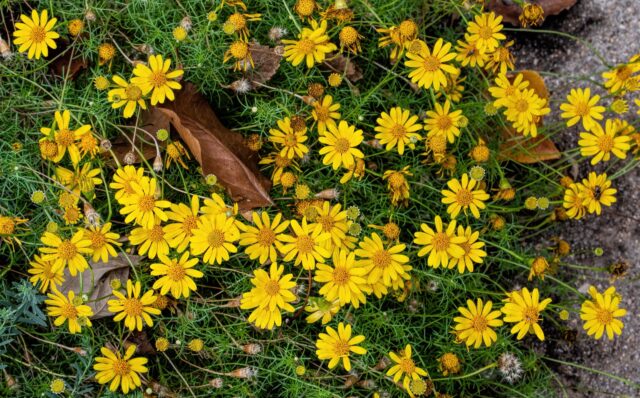
Here are a few snapshots from the yard taken this week. The low tonight will be 25°F, according to the weatherman. It’s possible that some of the plants will survive that, thanks to the microclimate near the house. However, the 20° forecast for Friday night will probably do them all in. These are likely the last garden pictures of the year (though indoors the very red orchid has a fresh set of buds).
The dainty forefinger of terror
Long before The Haunting of Hill House, P.G. Wodehouse explored the possibilities of malevolent spirits infesting old houses. Here is probably the most chilling story Plum ever wrote, published nearly a century ago in 1925.
Irreproducibility
When I check the daily rankings at Pixiv, I’m usually content to enjoy the pretty, albeit anime-style pictures. Once in a while, though, I wish I could read Japanese, such as on the manga page above which caught my eye this morning.
(If you visit Pixiv, be aware that many of the artists are males stuck in randy adolescence, and not all the pictures are tasteful.)

